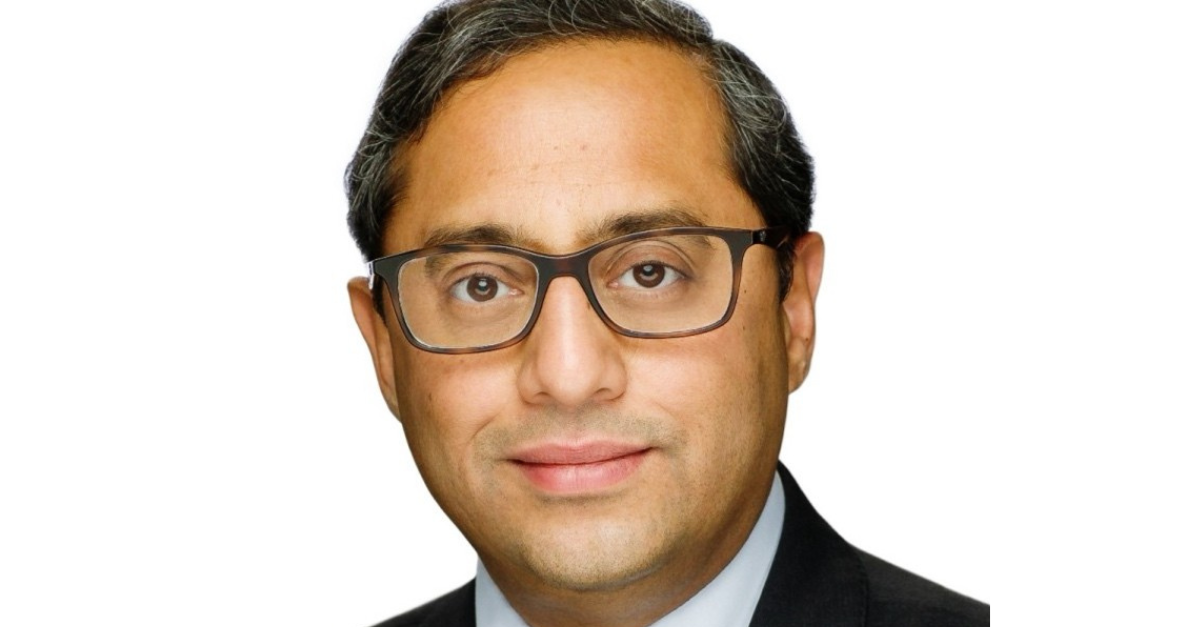Medicare Advantage, UnitedHealth Group, physician pay and reimbursement and layoffs were top of mind for Fierce Healthcare readers in 2024.
Cybersecurity also stayed in the spotlight as UnitedHealth Group’s Change Healthcare was hit with a massive ransomware attack that caused severe consequences for physician practices and ultimately impacted 100 million people.
Major changes in the primary care and telehealth markets also drew readers’ interest this past year as Forward Health shuttered operations and Walmart shut down its clinics and virtual care businesses.
As we close the year, one of the biggest stories in healthcare occurred just a few weeks ago when Brian Thompson, CEO of UnitedHealthcare, was shot and killed in Manhattan while on his way to UnitedHealth Group’s annual investor day. The industry is still reeling from the violent attack and the public’s reaction to it. The shooting is likely to push major companies in healthcare and beyond to put a focus on security and safety, experts told Paige Minemyer.
Here are the top 15 Fierce Healthcare stories of 2024, based on total page views over 12 months, ranked in ascending order with the most-read story at the end of the list:
15. Medicare Advantage star ratings 2025—Who are the winners and losers?
The Centers for Medicare & Medicaid Services (CMS) released data on the annual Medicare Advantage (MA) star ratings in mid-October, and the results were certainly not what major payers had hoped for. Leading insurers experienced a 0.23 year-over-year decrease in their star ratings, an analysis of the average star ratings for the top 15 MA plans by enrollment by consulting firm HealthScape Advisors, a Chartis Company, found. However, many of the large national insurers later sued CMS over the star ratings, securing recalculations that equated to millions in additional quality bonus payments for MA.
14. Fierce Healthcare layoff tracker—CVS Health confirms layoffs in two states
Health systems and hospitals continue to feel the squeeze from operating expenses and inflation, and this led to ongoing layoffs. In June, Ohio’s University Hospitals announced plans to cut more than 300 jobs in a bid to reduce its “soaring costs,” while, the same month, Oregon Health & Science University announced plans to lay off more than 500 employees “over the next few months.” Digital health companies also made big workforce changes as, in November, mental health company Headspace reduced its workforce by 13%. Readers kept up to date on these ongoing changes through our layoff tracker.
13. Lurie Children’s Hospital says nearly 800K patients’ data compromised in cyberattack
In January, was hit with a cyberattack and was forced to take patient-facing systems offline for more than three-and-a-half months. Illinois’ largest pediatric care provider was the victim of a cyberattack from “a known criminal threat actor,” leading to outages of electronic health records, phone and email systems that were gradually restored through May. The provider sent out data breach letters to about 792,000 people warning them of cybercriminals’ potential access to their personal information.
12. US hospitals prep for supply chain constraints in wake of Baxter International plant closure
In late September, Hurricane Helene caused significant damage to a Baxter International manufacturing plant in North Carolina, causing widespread shortages of IV fluids for hospitals. Baxter—the U.S.’ top supplier of hospital IV fluids and peritoneal dialysis solutions—had to temporarily shut down production at its North Cove, North Carolina-based facility as a result of flooding and damage from the hurricane. Baxter also reduced product shipments as part of its mitigation strategy. The plant is still not back up to pre-hurricane production levels, but the company announced last week it restarted eight of the 10 manufacturing lines at the site, which represent about 85% of the site’s total pre-hurricane capacity.
11. UnitedHealthcare CEO shooting suspect charged with first-degree murder as an act of terrorism
The fatal shooting of UnitedHealthcare CEO Brian Thompson in Manhattan on Dec. 4 shook the industry, not only because of the targeted, brazen attack against a health insurance executive but also the public reaction to it, with a wave of social media vitriol, celebration and rage toward the healthcare industry. The shooting led to a multistate manhunt before a man was arrested in central Pennsylvania and charged with Thompson’s murder.
10. Walmart Health’s shutdown underscores major challenges for retail health ‘disruptors’
In late April, Walmart revealed that it was shuttering all 51 of its Walmart Health centers along with its virtual care services. Walmart launched its health centers in 2019 and then expanded to 51 facilities in five states. The clinics typically provided a range of services including primary care, dental care, behavioral health, labs and X-rays. Walmart’s plan to close down its medical clinics in five states underscores the major challenges retail players face in their aim to “disrupt” healthcare and provide primary care at scale, healthcare leaders said.
9. Primary care player Forward shutters after raising $400M, rolling out CarePods
Early last month, primary care player Forward abruptly shut down its operations, closed its locations and canceled scheduled visits. All of its nearly 200 employees will lose their jobs, according to media reports. The company launched in 2016 as a tech-enabled direct primary care business based on a cash-pay model that doesn’t take insurance. Tech Crunch had reported that the company raised $657 million to date. Forward reached a $1 billion valuation in 2021. During a podcast interview after shutting down, Forward founder Adrian Aoun said the company, with its focus on technology and AI-enabled CarePods, was “ahead of its time.”
Dave Muoio took a deep dive on a wave of employee layoffs at UPMC announced in April. According to an internal presentation obtained by Fierce Healthcare, the “tough, but necessary” layoffs are just one part of a broader restructure and operations “transformation” initiative, for which the nonprofit system tapped management consulting firm McKinsey & Company. The nearly $28 billion Pittsburgh organization told employees that it was “confidently going forward” with layoffs that were among the “early phases of operational/quality changes across UPMC.”
7. Optum WARN filing: 524 workers in California laid off
Two stories about layoffs at Optum made the top 15 list of most-read stories this year. In July, Noah Tong reported that Optum downsized its Landmark Health unit, a medical care division, and announced plans to leave 18 metropolitan markets. Optum officially laid off 524 workers in California, according to WARN Act filings submitted to the state July 18. Throughout the state, Optum planned to close 15 locations. The addresses associated with the WARN filings show layoffs at Optum Infusion Services, urgent care locations and primary and specialty care clinics.
6. The 20 highest paid specialties in 2023 as doctors see 6% boost in pay: Doximity
Professional medical network Doximity’s annual physician compensation report is a popular story with our readers every year, and it once again leads our top 10 list of most-read stories in 2024. After several years of modest or declining growth, the average pay for doctors jumped 5.9% in 2023, rebounding from a decline of 2.4% in 2022, according to the report released in May. Most medical specialties experienced positive growth in 2023, with the top 10 seeing annual growth rates exceeding 7%.
5. Doctors, facing another pay cut in 2025, call for permanent Medicare payment reform
Provider groups were quick to condemn the Centers for Medicare & Medicaid Services’ decision to go ahead with 2.9% pay cut to physician payments in 2025, which was proposed in the draft rule released in July. The American Medical Association (AMA) pointed out that that while physicians are receiving a payment cut next year, medical practice costs for physicians will increase by 3.5% in 2025. After being adjusted for inflation, Medicare reimbursement to physicians has decreased 29% since 2001, the AMA says. Provider groups stepped up calls for the Biden administration to work with Congress to enact a permanent, annual inflation-based update to Medicare physician payments.
4. Optum layoffs: Ohio facility closing, 129 employees impacted
Optum revealed in May that it would shut down its Optum Virtual Care division following significant social media speculation. Noah Tong continued to report on workforce changes at Optum as a WARN notice revealed plans to close a facility in Toledo, Ohio, affecting 129 remote and in-person employees. The company also cut jobs at naviHealth.
3. UnitedHealth chief Andrew Witty was 2023’s highest-paid payer CEO. Here’s what his peers earned
Each year, Fierce Health Payer takes a deep dive into insurance companies’ annual proxy filings to analyze the salaries and compensation packages for the top CEOs. In 2023, UnitedHealth CEO Andrew Witty topped the list for the first time, bringing home $23.5 million in total compensation. Elevance Health CEO Gail Boudreaux came in at second place with $21.9 million in compensation for 2023. Stock awards make up the largest share of compensation packages for these CEOs.
2. Humana exiting Medicare Advantage in 13 markets
2024 was a challenging year for Humana as the company felt the weight of major changes in Medicare Advantage (MA) payments as well as ongoing increases in utilization. In September, the company said it would trim down its MA footprint by exiting 13 markets in the 2025 plan year. By leaving those regions, Humana expects about 560,000 members would be affected—about 10% of its individual member base—though about half of those are likely to join another Humana plan. In October, the company saw its stock sink to its lowest level in 15 years after the federal government cut the rating for one of its most popular offerings.
And, the most-read story overall:
1. Change Healthcare begins breach notifications to firms with impacted members, patients
A ransomware attack on UnitedHealth Group’s Change Healthcare unit in February had far-reaching ripple effects on the industry, marking the most significant healthcare cyberattack in history and the largest ever healthcare data breach. On Feb. 11, 2024, an affiliate of the BlackCat/ALPHV ransomware group breached Change Healthcare’s network, then spent nine days inside the network stealing data before ransomware was used to encrypt files. It’s estimated that 100 million individuals’ personal, health and financial information was stolen in the attack. UnitedHealth Group estimates the attack will cost the company $2.9 billion.
Publisher: Source link










